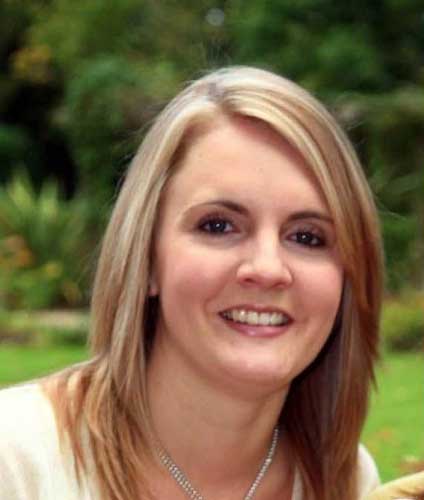Wealth Check: 'Can I afford to save for a house and a wedding?'

Nicola Riseam, 28, a digital marketing manager from London, has her day-to-day finances under control, but with a wedding and a new home on the horizon, her priorities are torn and she is uncertain about her financial obligations for the future.
"I don't know how we can achieve what we want to in the next few years," she says. "We will be saving a substantial amount a month for the wedding but I don't know whether I should put some of that on the mortgage for our flat to reduce it so we can buy a house. We need to have enough money to get married but also safe-guard our future by doing enough to buy a property."
Case notes
Salary: Nicola earns about £30,000 a year.
Monthly outgoings: She spends £1,000 a month on living expenses, and £1,050 goes into savings for the couple's wedding and a new home.
Savings: Nicola's savings are split – £800 goes into a savings account every month and about £250 is put away under her employer's company share save scheme.
Mortgage: Nicola and her partner share the repayment mortgage on her property, worth £112,000.
Pension: Nicola pays 5 per cent of her salary into a company pension scheme, which would pay out £4,000 a year in retirement income at its current level.
Debt: £0.
Three independent financial advisers help Nicola this week: Kevin Tooze of Equity Partners, Gordon Bowden of Quainton Hills Financial Planning, and Darius McDermott of Chelsea Financial Services.
Savings & property
The advisers agree that Nicola appears to be in a strong position to achieve her objectives. "But there is one glaring conflict," warns Tooze, "and that is that she wishes to spend £20,000 on a wedding yet save to purchase a property. Much like oil and water, the two do not mix."
If she is convinced of the value of her wedding plans, it's imperative that she maximises the savings rates on offer. "Nicola can invest up to £3,600 in a tax-free cash ISA before 5 April 2009," says Bowden.
"She can then save up to £300 per month to take advantage of future years' allowances. Halifax is currently offering 3.7 per cent fixed interest for one year provided she deposits at least £500."
Alternatively, regular savings by direct debit with Scottish Widows which is currently paying 3.6 per cent interest on their E-cash ISA including a 1.5 per cent 12-month bonus.
Both Nicola and her fiancé should use their annual ISA allowance and then shop around for the best savings deal for their other savings of £800 a month, he adds. Barclays, for example, are paying a fixed 6 per cent on regular savings of up to £250 per month for 12 months.
But in this housing climate, Tooze recommends that the couple should focus on their property hopes as now could be the perfect time to pick up a reasonably priced home.
"With incredibly low interest rates and properties decreasing in value, now is an excellent time for Nicola to move up the property ladder," he says. "Part of this plan should be to reduce the cost of her wedding, which will pay considerable dividends in later life, and place far less burden upon their income when looking to meet mortgage payments."
"Nicola will need a significant deposit for her property," agrees McDermott. "Banks are simply not lending to anyone who walks through the door with only a 10 per cent deposit. The good news is that once Nicola can raise a substantial deposit of 20 or 30 per cent, she can take advantage of very attractive mortgages rates. Interest rates are extremely low and expected to fall further."
Pension & investment
"Nicola has sensibly started her pension plan early," McDermott adds. "She should continue to do this, gradually increasing her contributions. After she has purchased her house and married, she should also consider supplementing her pension plan with an investment portfolio.
Given her low-risk approach to investing, Nicola should look at a mixture of low-risk equities and bonds."
Meanwhile, like many other people who have changed jobs, Nicola also has a pension fund from her previous employer. "This pension should be reviewed as it may be suffering from costly annual management charges," Tooze suggests.
"And considering the economic events of the last year, it's likely that the fund allocation needs to be reviewed. If it is possible, these investments may need to be altered to reduce the risk they may now carry to fit in with Nicola's 'not very risky' approach to investing."
Protection
The advisers applaud Nicola for having a will in place – unlike the 50 per cent of UK adults who don't. But other elements of her financial protection need reviewing.
Nicola only has mortgage payment protection insurance in place to protect her money if she becomes unable to work, but Tooze warns that this is probably inadequate.
"These policies typically cover mortgage payments in the event of being unable to work due to accident, sickness or unemployment," he notes. "But they only pay out for one or two years and the premiums are relatively expensive for such short-term cover."
He suggests that she should check the cover her employer would offer in this situation, as it may provide the equivalent cover that she is paying for separately. Nicola should then investigate income protection insurance which would cover her long term if she was unable to work.
For a free financial check-up, write to Wealth Check, The Independent, 191 Marsh Wall, London E14 9RS; or email wealthcheck@ independent.co.uk
Subscribe to Independent Premium to bookmark this article
Want to bookmark your favourite articles and stories to read or reference later? Start your Independent Premium subscription today.

Join our commenting forum
Join thought-provoking conversations, follow other Independent readers and see their replies